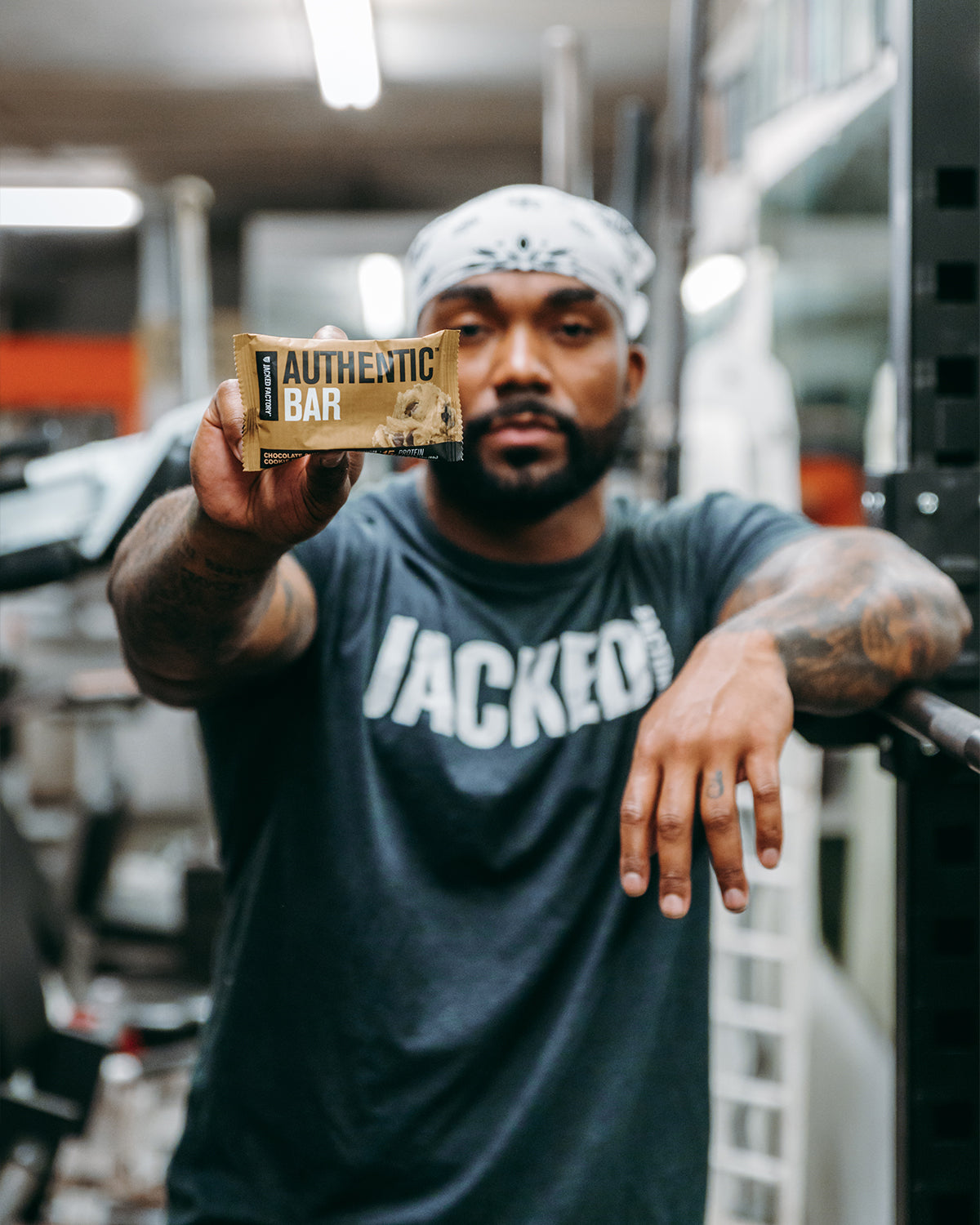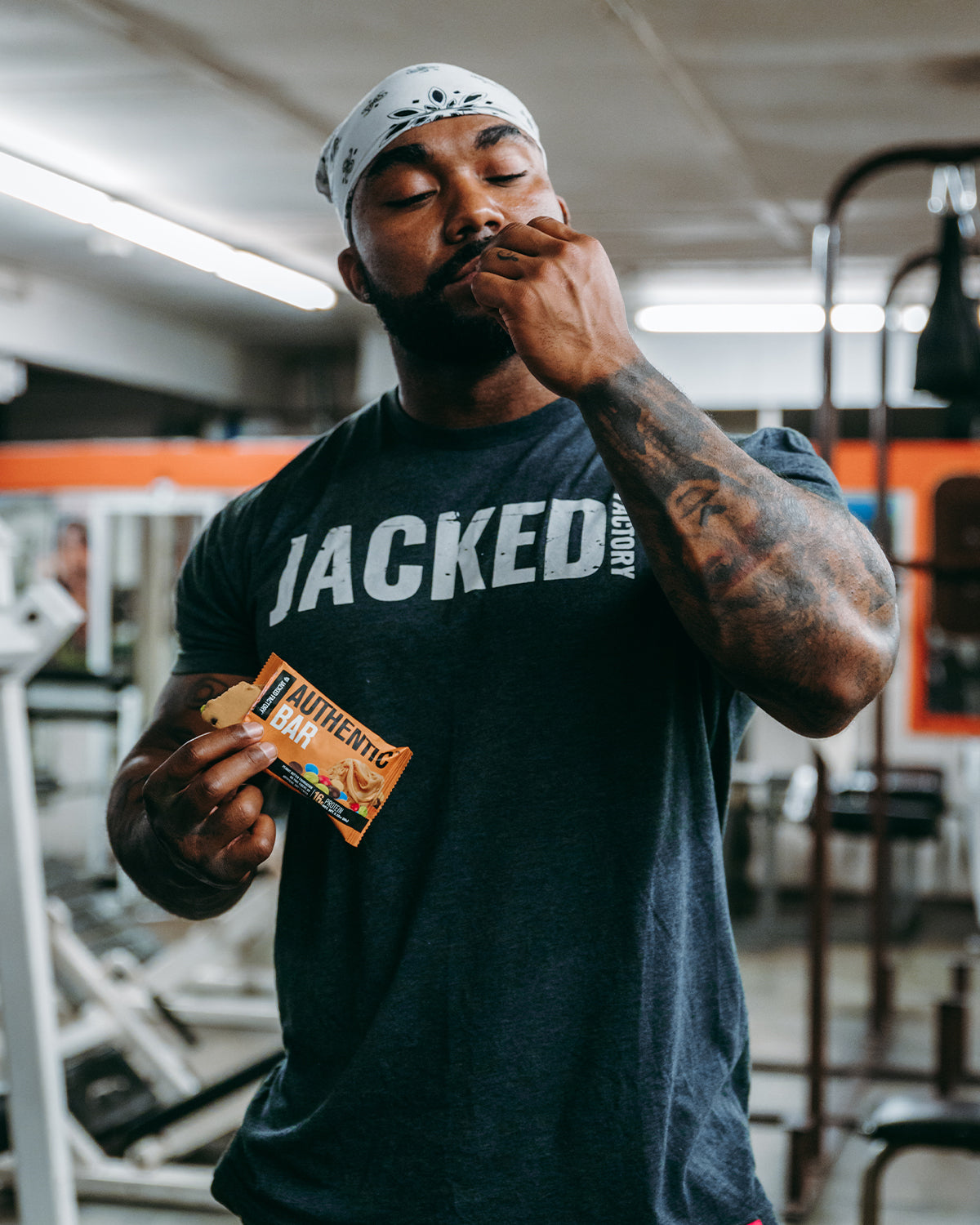Are Protein Bars Good For You?
In our fast-paced, on-the-go society, more people are turning to healthy protein bars and meal replacements as a convenient way to stay on top of their diet. However, not all protein bars are made equal.
In fact, many protein bars are little more than a candy bar with some added soy protein. Sure, they seem like a “healthy” snack at first glance, but you realize it’s probably not the best option for meeting your nutrient needs when you look a bit deeper at the ingredients.
While they are typically better options than what you find at fast-food restaurants, meal replacement bars and protein bars are often crafted with quantity in mind, not quality. Yet, many people disregard proper nutrition when they’re in a pinch for time, instead opting for whatever is easiest and quickest.
Frequently resorting to low-quality convenience foods will undoubtedly erode your health and diminish athletic performance. Research suggests that chronic oxidative stress — a putative culprit of many neolithic diseases — is an upshot of overeating (i.e. excess calorie intake) and poor nutritional habits [1].
Overproduction of reactive oxygen species – such as free radicals – induces oxidative stress in cells. While some oxidative stress is necessary, too much can cause DNA damage, which can further lend itself to carcinogenicity, among many other harmful effects in the body, including:
- Weakening the immune system.
- Expediting age-related neurodegeneration.
- Damaging vital organs, including the heart, kidneys, and liver.
As such, both the quantity and quality of food in a person’s diet makes a difference. Remember that food is ultimately Mother Nature’s primary form of medicine and fuel for the body. Thus, a quality protein bar made with real-food ingredients is quite handy for health-conscious individuals who find themselves with limited food options and don’t want to sabotage their diet.
The better the ingredients in a protein bar, the better it will be for your health and performance. So, read on and learn what ingredients to look for (and which to avoid) in a high-quality protein bar.
Ingredients to Look for in a Quality Protein Bar (and Which to Avoid)

Keep in mind that convenient and healthy nutrition should serve to accomplish several goals, including:
- Providing lasting energy without a post-sugar crash
- Serving as a source of high-quality protein to support muscle recovery and growth
- Promoting satiety and reducing hunger
- Tasting good (i.e. not like a piece of chalk covered in pseudo-chocolate glaze)
- Being “light” and easy on the digestive system
Knowing these goals, here are key ingredients that comprise a healthy protein bar:
Whey Protein (Not Soy Protein!)
Most protein bars on the market are made with soy protein isolate and wheat protein. Doing so allows supplement companies to cut production costs and deceptively list a higher protein content on the label. However, the amino acid profile of these sources pales compared to quality proteins like whey and casein [2].
Rather than settling for slightly higher amounts of poor-quality protein sources, look for protein bars that incorporate whey protein isolate as the primary protein source; this will avoid soy and wheat allergens while providing a complete spectrum of essential amino acids for supporting muscle recovery and protein synthesis. After all, they are “protein bars” for a reason — it makes sense to find the ones that feature a quality protein source, not necessarily the highest amount of protein. You’re better off consuming 15 grams of whey protein than 20 g of soy protein.
Easily Digestible Carbohydrates and Natural Sugars
Arguably the most misleading notion about protein bars is that “low-carb” means “healthy.” The catch is that just about every low-sugar, keto-friendly protein bar on the market a) has an awful texture and b) contains tons of isomalto-oligosaccharides, sorbitol, maltitol, etc., to promote satiety and keep the net carb count down.
Sugar alcohols are known to cause flatulence and bloating at doses commonly used in low-carb protein bars [3]. Obviously, that’s not what you want when you’re out and about or traveling.
Likewise, the egregious amounts of dietary fibers packed into low-carb protein bars can wreak havoc on the gut and leave you running for the bathroom. Again, not ideal for on-the-go nutrition.
For active individuals, carbohydrates are not the enemy. If anything, your body thrives on carbohydrates for energy during exercise, especially if you regularly pump iron and train at higher intensities [4]. While you don’t want to overdo it on sugar intake, eating some sugar from natural sources like honey and fruit is not a “bad” thing by any means.
Also, complex carbohydrates from foods like oats, brown rice, and sweet potatoes are great for lasting energy throughout the day without being tough to digest. As such, a quality protein bar should provide a modest amount of complex and simple carbs from whole-food ingredients while not overdoing it on added fiber.
Essential Fatty Acids

Many convenient grab-and-go bars that you find at the supermarket and gas station have little nutritional value in terms of their essential fatty acid content (plus, they’re loaded with corn syrup). Protein bars are generally made with “creamers” and low-grade plant oils that pack tons of saturated fat in just a few bites.
For reference, the American Heart Association recommends a daily saturated fat intake of just 13 grams for someone on a 2,000-calorie diet [5]. If you eat two protein bars that contain 6, 7, or even 8 grams of saturated fat each, that essentially covers your intake for the entire day.
When shopping for a healthy protein bar, look for ingredients like nut butter (cashew butter, almond butter, peanut butter, etc.) as the primary fat sources. These are low in saturated fat and rich in unsaturated essential fatty acids, like oleic acid, that are generally good for the cardiovascular system, metabolic function, and controlling inflammation [6].
So there you go, a quick overview of the ingredients to look for (and avoid) when looking for a protein bar engineered with quality in mind.
AUTHENTIC BARS: AUTHENTIC INGREDIENTS. AUTHENTIC TASTE. AUTHENTIC RESULTS.
Unlike many protein bars these days, Jacked Factory Authentic Bars don’t compromise on quality, taste, or texture — these delectable protein bars are made with real-food ingredients that melt in your mouth, like chocolate chips, peanut butter, caramel pieces, and coconut. One bite and you’ll be hooked! No dry, chalky texture that you can barely manage to swallow.
Just as important as what’s in Jacked Factory Authentic Bars is what’s not in them. Unlike many misleading “low-carb” protein bars, Authentic Bars have absolutely no the gut-wrenching sugar alcohols and fibers that leave you feeling bloated and sluggish. There’s also zero soy protein, artificial sweeteners, or cheap creamers. Instead, Authentic Bars pack 14-16 grams of complete protein from whey protein isolate, 12-14 grams of healthy fats, and 21-27 grams of easily digestible carbohydrates from natural sources like honey and oat flour. Authentic Bars are the perfect on-the-go snack/meal replacement for athletes, gym-goers, and fitness enthusiasts alike.

Choose from five delicious flavors (and more on the way), including:
- Peanut butter candy
- Kitchen sink
- Chocolate chip cookie dough
- Mint chocolate chip
- Coconut Cashew
There is an Authentic Bar for everyone! To learn more about Authentic Bars and snag a box (or four), click here!
The post Protein Bars: Are They a Healthy Meal Replacement? appeared first on Jacked Factory.




1 comment
Dee Years
Where do I sign up for free protein bars
Leave a comment
All comments are moderated before being published.
This site is protected by hCaptcha and the hCaptcha Privacy Policy and Terms of Service apply.